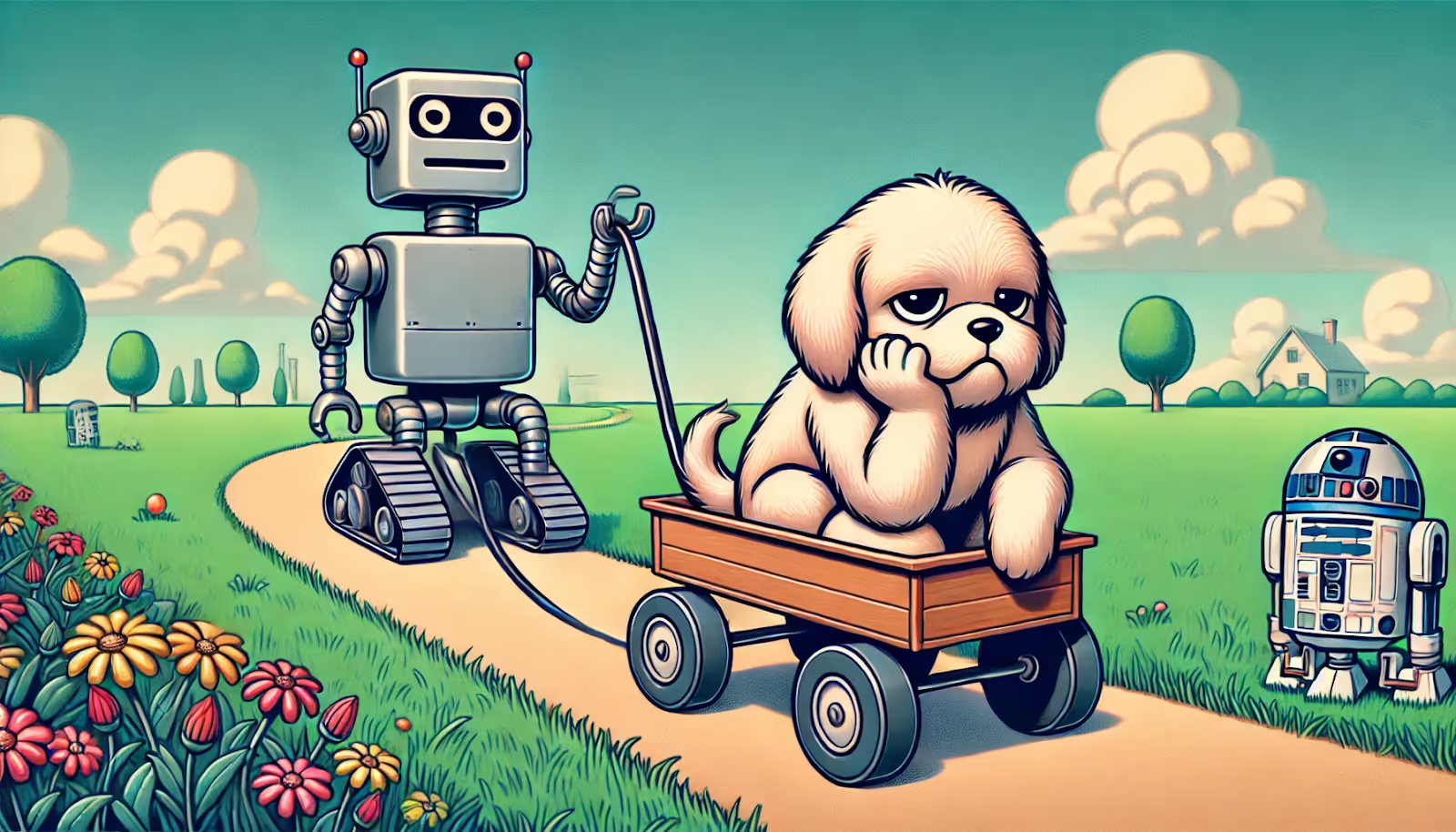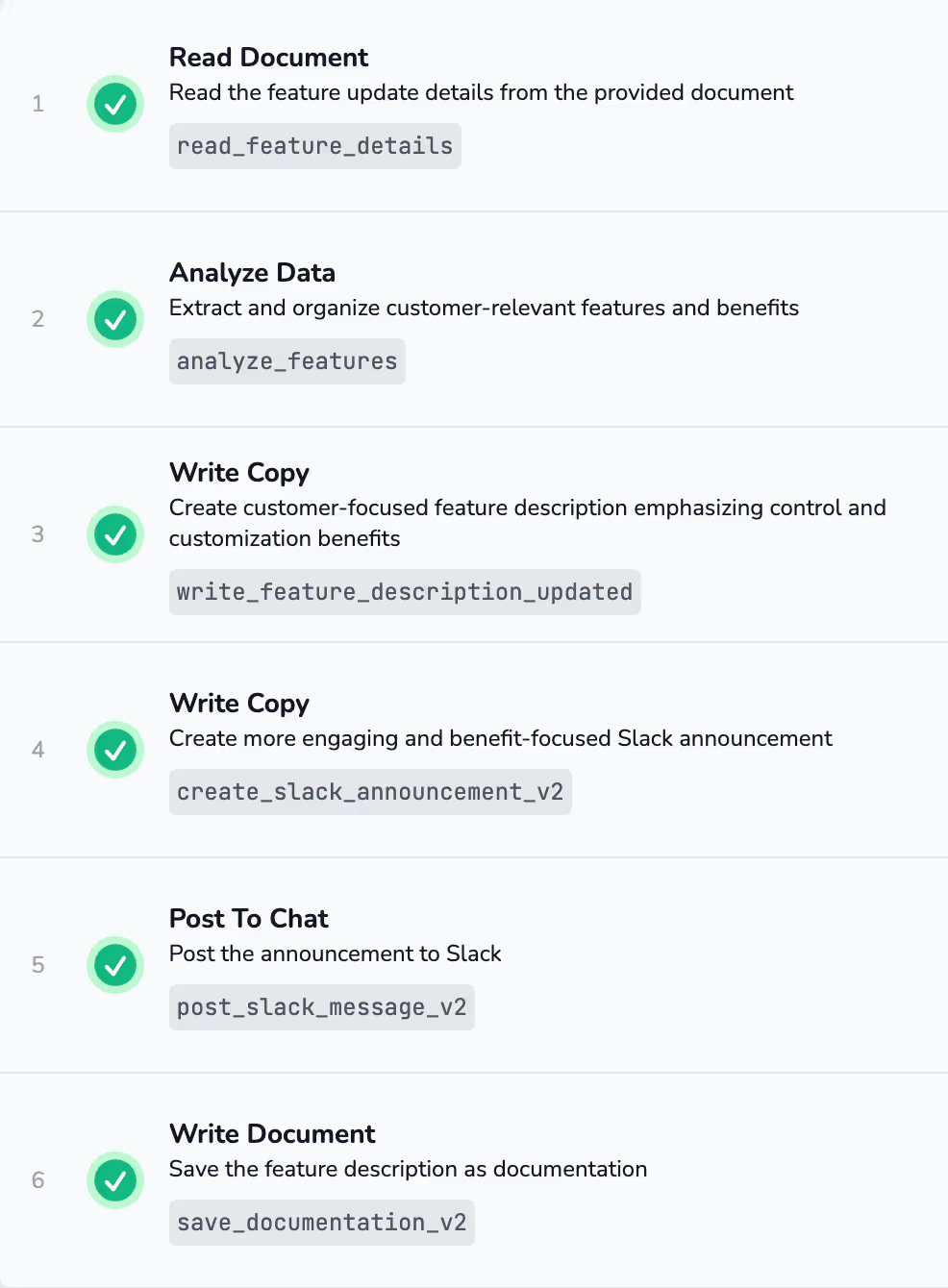Why We Don't Talk About Automation




Them: "So, you're the CEO of Teammates? What do you folks do?"
Me: "We create AI virtual employees for B2B companies.
Them: "Oh, got it! You're in automation!"
Me: “no, see...”
Them: “Cool, Automation is cool!”
Me: <gets out my favorite “well, actually” t-shirt>
I get why people make this comparison, but it's like comparing a food processor to a sous chef. Both will chop veggies but one is only concerned with speeding up the chop, while the other cares about your dietary restrictions, has great ideas about how to incorporate a red wine reduction into that dish you were thinking about, and knows the difference between a rhubarb and a tube of toothpaste.
And this distinction matters so much more than you think (and not just for the rhubarb).
Analysts are making massive predictions about the upside of the global AI market. PWC believes that “AI will contribute $15.7 Trillion globally by 2030.” Meanwhile corporations are spending massive amounts to get a slice of that pie. But what happens if they’re all doing it wrong?
We believe if you’re going to invest any amount of your operating budget on AI Agents they should do more than speed things up.
At Teammates, we're not in the business of making existing processes faster – we build AI Agent collaborators who think, learn, and work alongside your team.

Okay, look: automation can be helpful, especially when you know exactly what needs to happen and just want it to happen faster. For example, sorting customer service tickets so that they don’t just pile up in one person’s inbox, or using software to convert a PDF for you.
But automation doesn’t change how we work. It just removes some of the grunt work. That’s not enough for us and it shouldn’t be enough for you.
Frankly, removing some of the grunt work is what everyone else is selling.

At Teammates, we do something fundamentally different. Our AI agents don’t just follow predefined steps – they actually understand you and your business, make decisions, and handle complex situations that would normally require human judgment.
Consider this: you have an AI teammate managing your customer success operations. A major enterprise account is coming up for renewal, and there are some concerning signals about their satisfaction.
Anyone else’s AI Agent might: a) Flag the account as "at risk" based on basic usage metrics b) Generate a standard renewal playbook without context c) Create a task for a human CSM to figure everything out from scratch.
All of which might be helpful and even save you some time.
But here's what our AI teammate does:
This isn't just data collection – it is strategic analysis that gives the human team exactly what they need to walk into that renewal conversation confident and prepared.
Oh, and our AI Agent does it all without being told what to do or how to do it. It makes a plan, thinks through the steps it needs, and then executes it.
In fact, right now, our own internal Agents are doing something that even WE weren’t sure was possible. We have an AI Teammate who reads our code commits, compiles a briefing for our human tech team, and notifies our AI marketing Teammate who then reads her briefing and decides, on his own, whether or not he should write up a customer-facing “new feature” alert.
How did we get it to do that? Did we create a mountain of “if this, then that” flow charts? Or write code? Or drag and drop from endless libraries of skills and options and templates?
No. We asked our tech Agent, “Hey, can you let our marketing agent know when you’ve compiled a changelog?”
Then we asked our marketing Agent, “Hey, you should read the changelogs and let me know if there’s anything you think is worthy of being customer-facing.”
That is what autonomy looks like. And that is what we’re building.

At Teammates, we're not trying to replace your human employees – we're giving them AI colleagues who can handle significant workloads intelligently. This means your human team can focus on the most strategic, creative, and emotionally complex aspects of their jobs.
Think about it this way: Would you rather have a robot that can send 1,000 identical emails per hour, or an intelligent teammate who can handle 50 meaningful conversations that actually move your business forward?
The future of work isn't about automating tasks – it's about creating true AI-human collaborations. And at Teammates, we're making that future a reality, one virtual employee at a time.
Want to see what a real AI teammate could do for your business? Let's talk about the specific challenges you're facing and how an autonomous AI agent could help address them.


